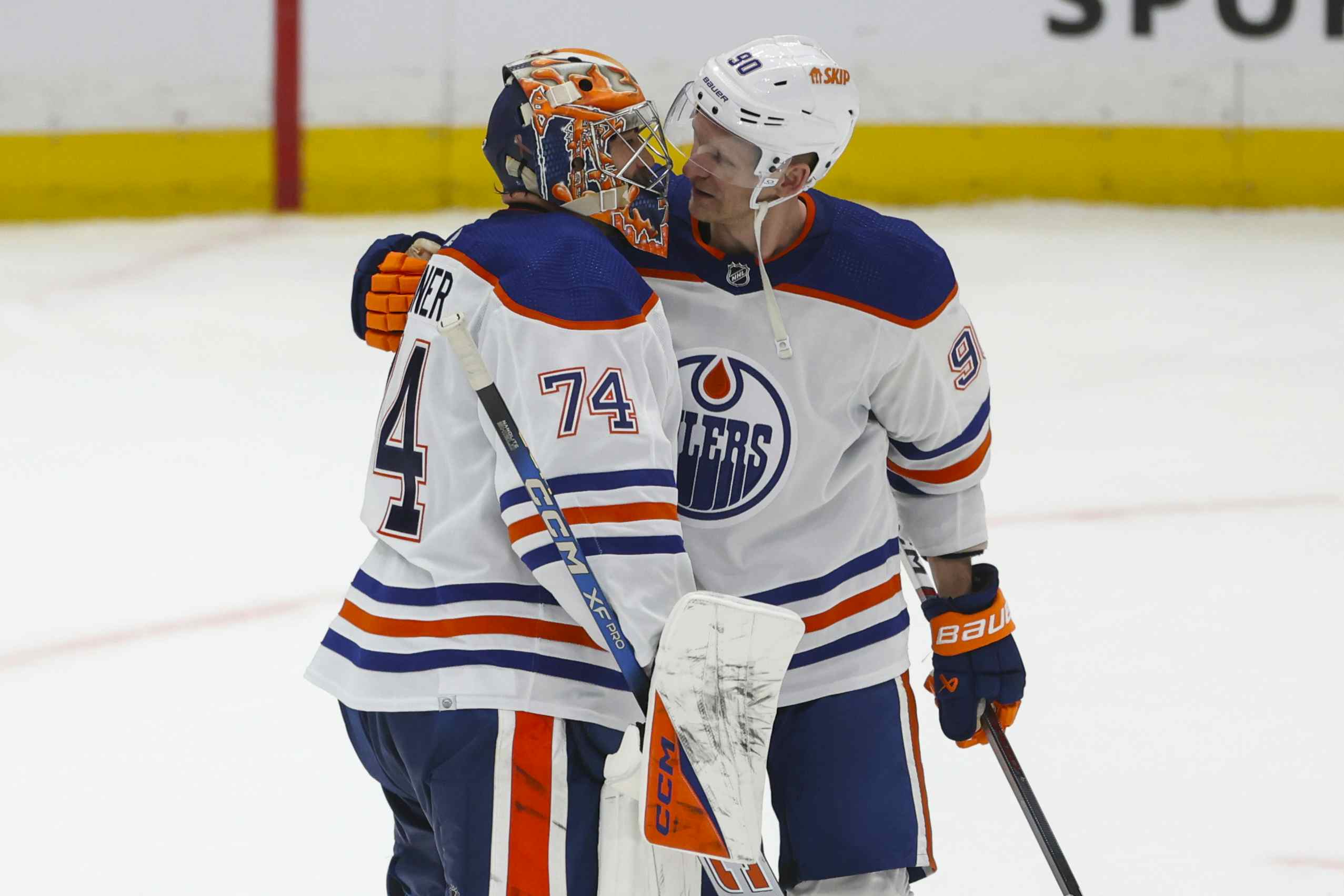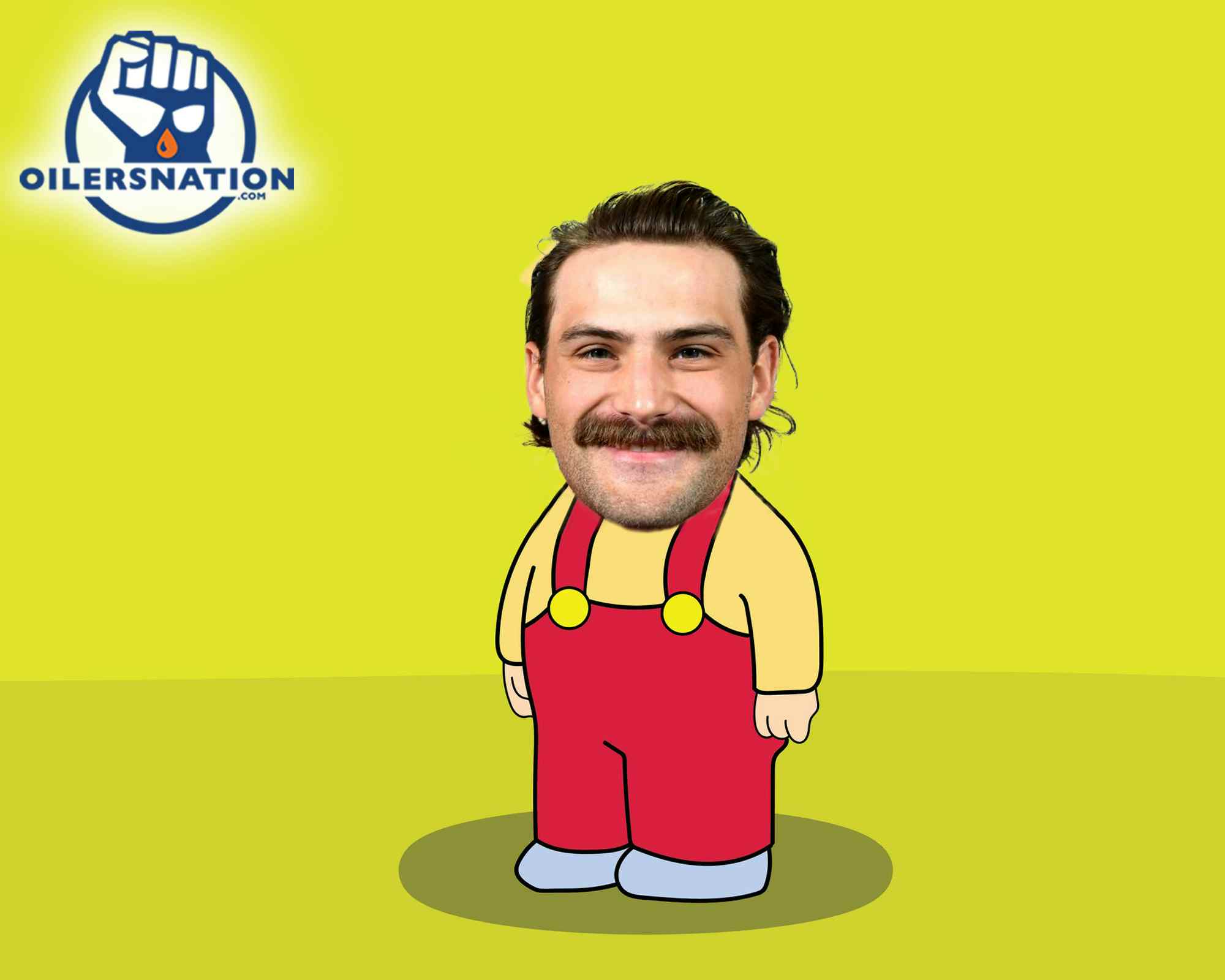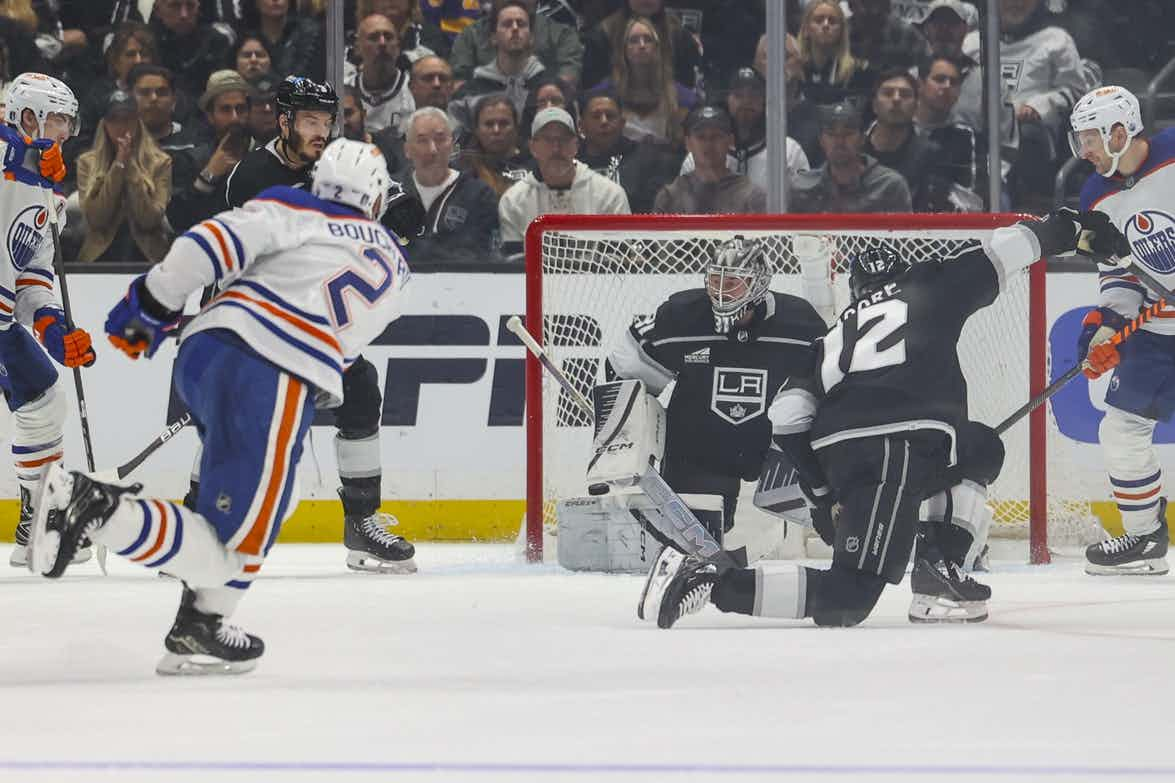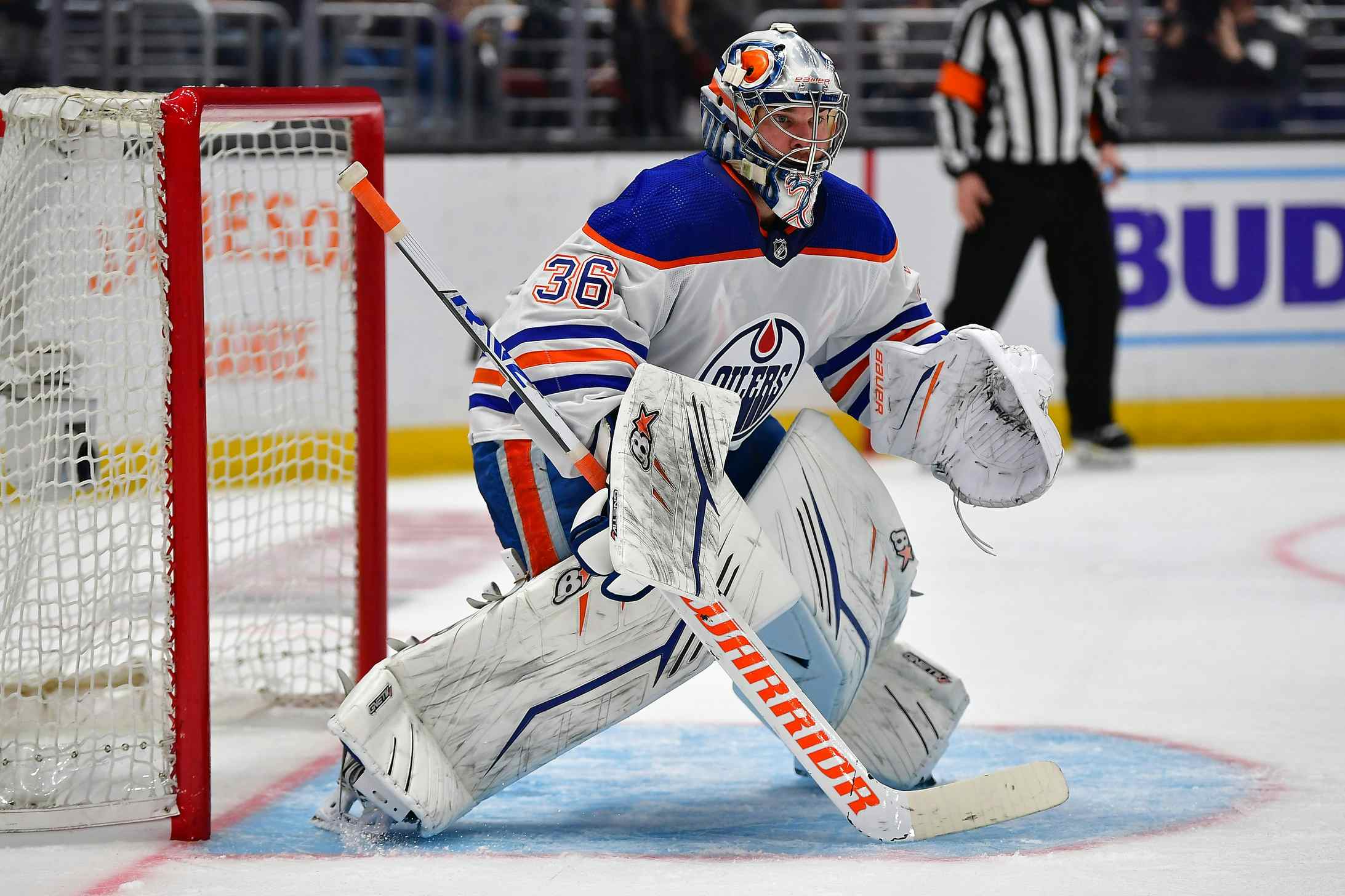THE CAPTAIN SPEAKS
By Jason Gregor
11 years ago
Shawn Horcoff has spent all 12 of his NHL seasons in Edmonton. He started as a fourth line centre, worked his way up to the top-line in 2006 and led all Oilers forwards in scoring during their miraculous 2006 Cup run. He’s played for four different coaches and tomorrow he’ll play for his third general manager.
He experienced one glorious playoff run, a few other postseason appearances, but lately he’s mostly experienced losing. I sat down with him to discuss the firing of Steve Tambellini, but I also got his thoughts on the type of team the Oilers have, and what they need to add moving forward.
I’ve always respected Horcoff’s effort. He isn’t the most skilled player, but if he was making $4 million instead of $5.5 he likely would never take as much flak as he does. I wish he was more activity in the community like Doug Weight and Jason Smith, because I feel that is incredibly important, but overall I’ve had few issues with Horcoff’s time in Edmonton.
I’ve always respected Horcoff’s effort. He isn’t the most skilled player, but if he was making $4 million instead of $5.5 he likely would never take as much flak as he does. I wish he was more activity in the community like Doug Weight and Jason Smith, because I feel that is incredibly important, but overall I’ve had few issues with Horcoff’s time in Edmonton.
He’s been the captain of team that has never had enough talent to compete, and I’m guessing that can become very draining. We discussed Tambellini, where this team is at now and most importantly what they have to do to get back to the playoffs.
Gregor: What went through your mind when you heard that Tambellini was fired?
Horcoff: I have a lot of respect for Tambi. I like him as a guy; I thought he did a lot of good things here. It’s just inevitable though when you go through seasons like we have and the situation we’re in right now, there are going to be changes. I’m sure that they’re not just going to stop with Tambi. I didn’t hear MacT’s presser, but I heard the comments he made in them. It doesn’t surprise me that he’s going to try to make bold moves to get us to the next level as soon as possible.
Gregor: It looks like another season without playoffs. Does it start to wear you down?
Horcoff: Probably the hardest it’s been is this year; because five games ago we were in the playoffs. I really felt like we were going to make that push and get there. We still can. We’re not out of it, but we have to do something spectacular and amazing to be there.
Gregor: You’ve been part of a team that went all the way to the Stanley Cup Finals. You didn’t have any real superstar forwards. You had a good mix of skill, but a few guys like Torres and Peca that could run guys over. Your team seems to be lacking, as Sam Gagner said, passion, especially after that game in Calgary. Can guys create passion themselves, or do you need to add a different type of player to compliment your skilled players?
Gregor: You’ve been part of a team that went all the way to the Stanley Cup Finals. You didn’t have any real superstar forwards. You had a good mix of skill, but a few guys like Torres and Peca that could run guys over. Your team seems to be lacking, as Sam Gagner said, passion, especially after that game in Calgary. Can guys create passion themselves, or do you need to add a different type of player to compliment your skilled players?
Horcoff: Well, it’s hard. It’s hard to reinvent yourself as a player. Sometimes it absolutely takes a player to do that to keep themselves in the league and to keep themselves around. In 2006, they did a good job of adding grit- Stoll, Raffi, and Peca- he was a skill player too, but he was really at that point in his career where he was still a great shut down guy, he could play PK, he could play power play.
If you look at the lineup, we probably do lack a little bit of that here. We’ve got a large number of guys with really high-end skill, but our record shows you there’s more to the game of hockey than just skill. As a player, I never place blame on management not bringing in the right people. I always feel like it’s up to the people in the dressing room to either change or adapt to what the team needs to make the team better, or just get better individually. For a player to sit here and blame management for where we’re at would just be ridiculous.

Gregor: You mentioned five games ago, you felt like you were going to make that push. You played three big teams to start, veteran teams who have been there before. What can you take from those games? What do you think you guys learnt from them? What do you think you guys are lacking that needs to improve?
Horcoff: I think the good thing is, we actually did accomplish something; we had our young guys play in very meaningful games. Those are playoff-style games. Those are teams that did not take us lightly. They were pushing for playoffs, pushing for spots, and they upped their game. That’s what teams do.
At this time of year, ten games to go, teams that are going to be in the playoffs and teams that are going to win the Cup and move on get better, plain and simple. They adapt their game, they become grittier. People who don’t hit find ways to be physical. You don’t have to kill guys, but it’s just going into the hard areas, going to the net, engaging in a battle, winning those one-on-one battles, those tough plays. I think it was a really good lesson for the young guys to see that happen right in front of their eyes.
We played against three teams, not because they were skilled more or less, they were just hungrier, and they played a more patient style. In each one of those games, I remember Vancouver and L.A. specifically; their top forwards just dumped the puck in the first five or six minutes. They came hard at us and just let us know, they set the tone early and basically said, ‘This is going to be a long game, this is going to be physical. If you want to win, you better be doing the same thing coming back to us.’
A lot of times in those tight games, it comes down to that one turnover and that one mess up, where you’re going to lose. We had guys who hadn’t been in that situation in the NHL before and they experienced it. At the end of the game I talked to most of them, they were just like, ‘Wow, it’s a different game out there.’
We played against three teams, not because they were skilled more or less, they were just hungrier, and they played a more patient style. In each one of those games, I remember Vancouver and L.A. specifically; their top forwards just dumped the puck in the first five or six minutes. They came hard at us and just let us know, they set the tone early and basically said, ‘This is going to be a long game, this is going to be physical. If you want to win, you better be doing the same thing coming back to us.’
A lot of times in those tight games, it comes down to that one turnover and that one mess up, where you’re going to lose. We had guys who hadn’t been in that situation in the NHL before and they experienced it. At the end of the game I talked to most of them, they were just like, ‘Wow, it’s a different game out there.’
Gregor: Did you get feedback from the young guys: Hall, Eberle, and Nugent-Hopkins, who most believe will be the core moving forward, regarding what they felt about their play and what they need to do to score and win those games?
Horcoff: Ya, they definitely saw it. It’s hard to explain it. I can say anything I want or any of the guys in here can say anything they want about how the game is going to change, but until you have played yourself through it and actually physically felt it and seen the raise in the intensity, the patience in the offensive side of the game and not turning pucks over in key areas, you don’t truly know how hard it is.
I think we accomplished that there. I think they were able to go in there and say, ‘Wow, this is different and we can learn from it.
When you play playoff style hockey and you get to play the better teams, they’re going to make it hard, they’re going to backcheck they’re tail off and have a lot of guys in front of the net. It’s going to force you to get pucks to the net and it’s going to force you to crash the net, force you to get dirty goals and we didn’t do any of that.
Gregor: What do you need to see in these final seven games, from this team, to believe that there is the right mix moving forward?
Horcoff: Accountability. It comes down to that. I think there is a lot that goes into accountability: Playing with passion, showing character, not giving up and playing hard until the end. I think that if everyone that comes into this locker room, every single night and says, ‘I need to be accountable to my teammates tonight,’ I think we will be fine.
I think we’ll go out and play hard to the end. We may not win every game, but I think we’ll be right in every single one of them. These last few games, we’ve taken undisciplined penalties and we just haven’t been prepared mentally. We haven’t started very well and I think it just comes to thinking, ‘If I go out there and keep doing the same thing, it’s going to be good enough,’ but it’s not. This time of year, teams are going to get better. If you don’t get better, you’ll lose games.
Gregor: What about the culture of the team? Losing and winning can both be infectious. When you’re losing, I’m sure it’s more of a mental battle to make sure you don’t give in to wanting to just give up. How do you change the culture inside the room?
Horcoff: I think we’ve already really done a good job of changing it, or starting that process. Losing, to us, is now unacceptable. We’ve actually seen long stretches of winning now. We won five to get us back into the playoffs. We’ve had a taste of winning. Five games ago, we were in the playoffs. So there’s something to be said about that. This team does have character and we’re doing good things to chance the culture, but it’s a process.
It takes time. It’s going to take all twenty-three guys, not just one or two lines going, it’s going to take all twenty-three pulling the same chord.
WRAP UP
It was interesting listening to Horcoff talk about his team. He was excited that the young guys had an opportunity to experience the increased intensity and focus shown by LA, Vancouver and Anaheim. It was a painful lesson to learn, since they lost every game, but if they didn’t experience they likely wouldn’t know what they need to do next season to win those meaningful games.
I’ve said for months that the Oilers can’t just expect to improve next season because the players are a year older. It isn’t that simple. Today I spoke to Sam Gagner about his post-game comments on Saturday, where he said the Oilers didn’t have enough passion. He followed up that honest response with this:
The best teams in the league they don’t get there by accident, they get there by building habits. We’re not just going to come back next year and be a year older and be a better team- it doesn’t work that way. We really need to focus these last seven games on building those habits, building that identity and getting better as a group.
The past ten days have been a difficult learning curve for the young Oilers, but if they use it as a learning tool it should benefit them for years to come.
RECENTLY BY JASON GREGOR
Recent articles from Jason Gregor





